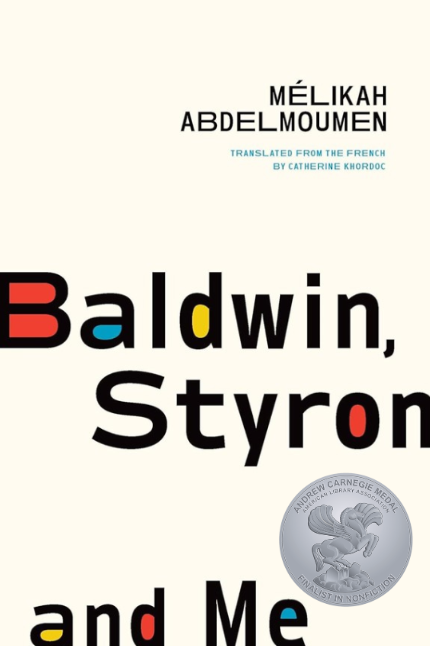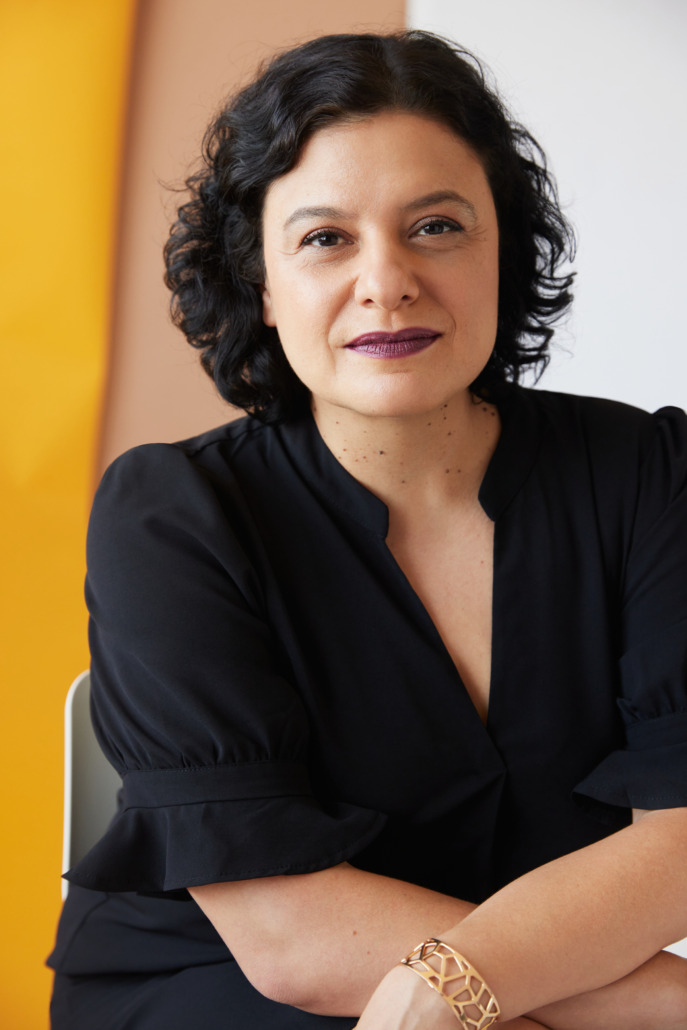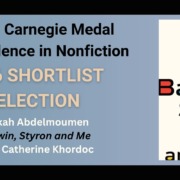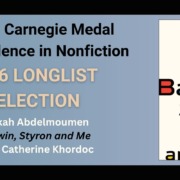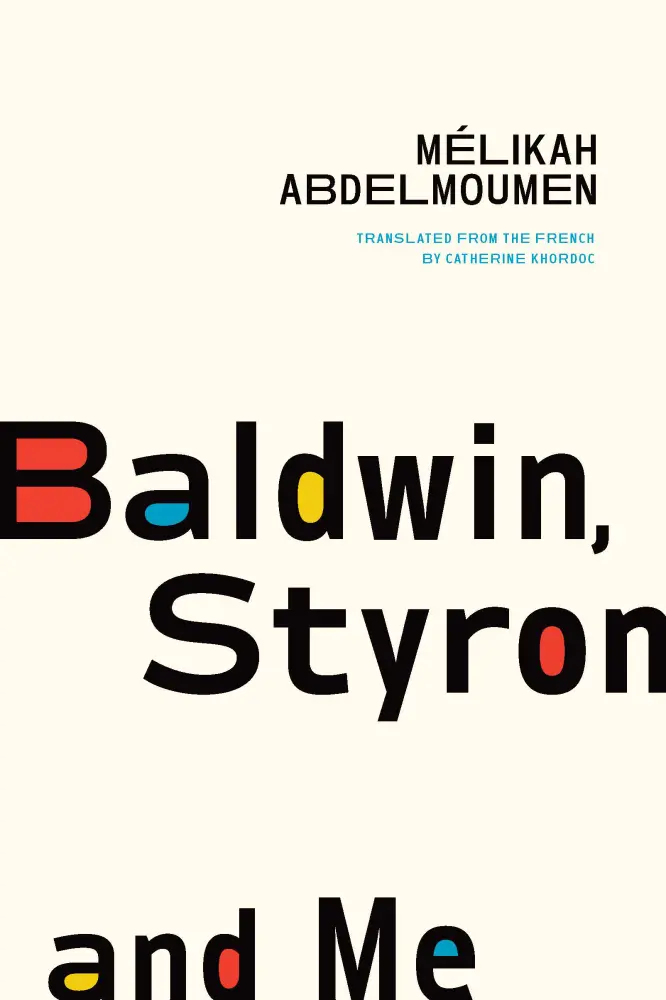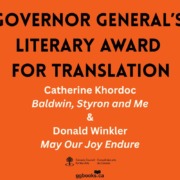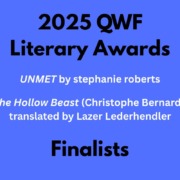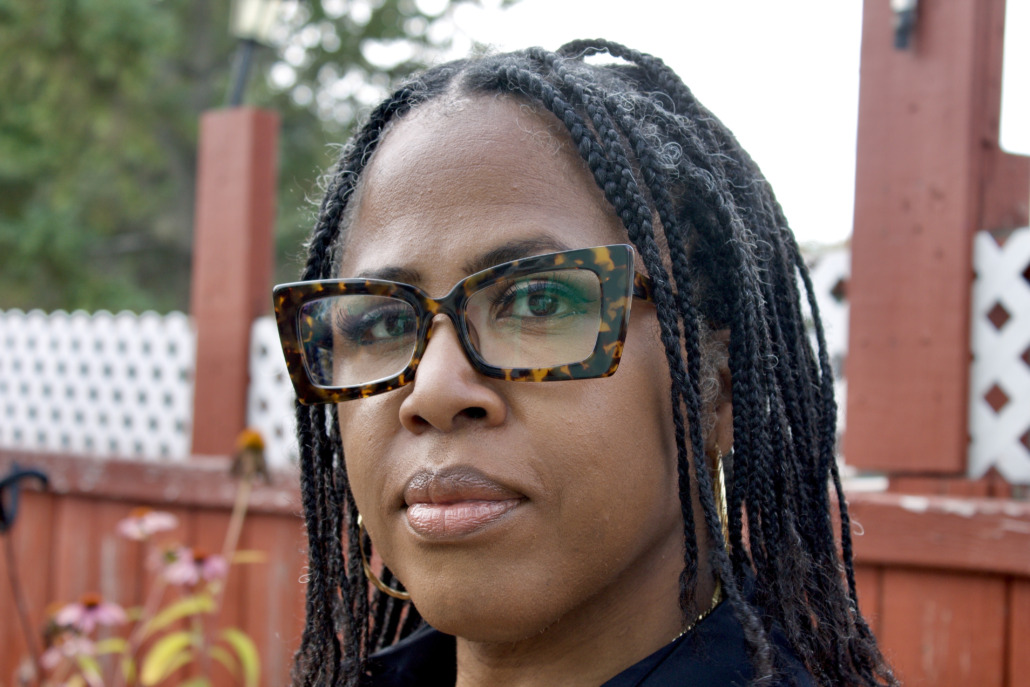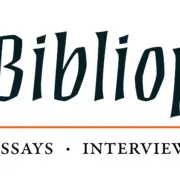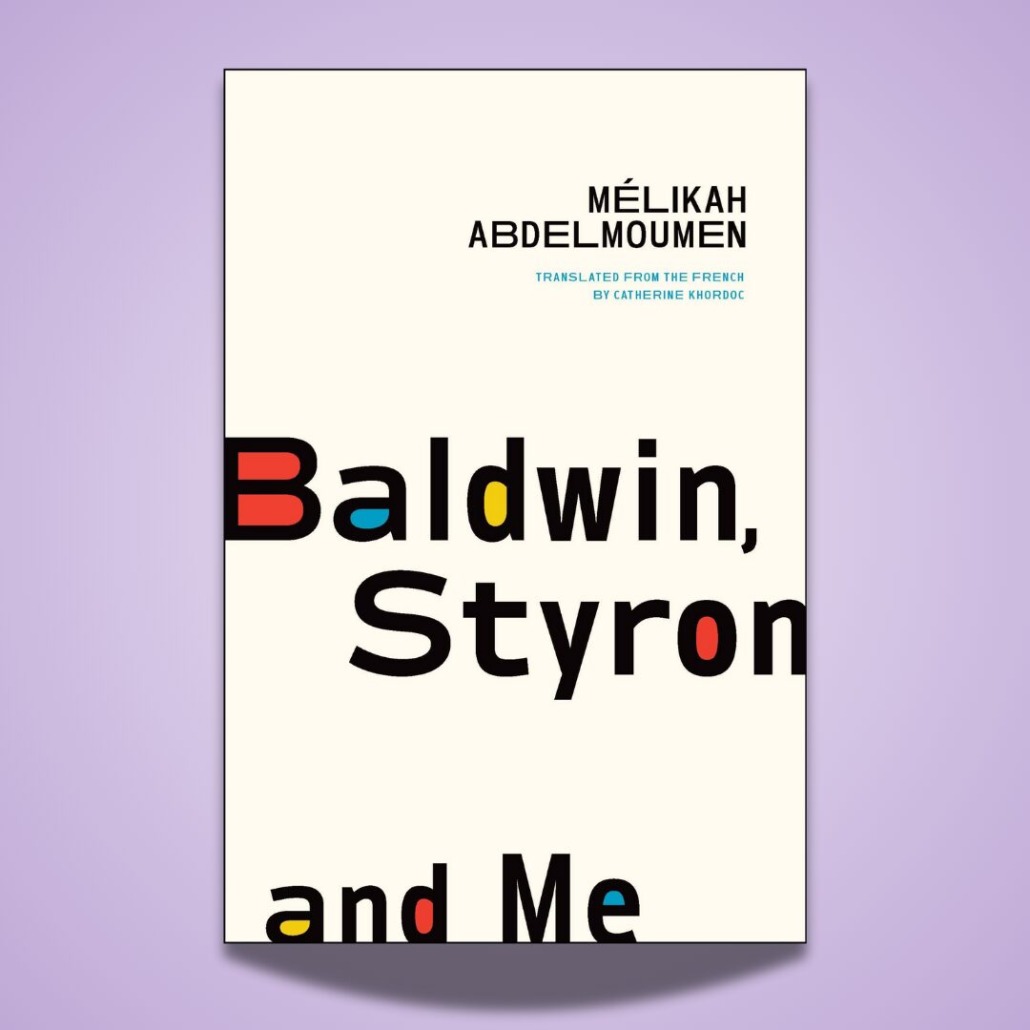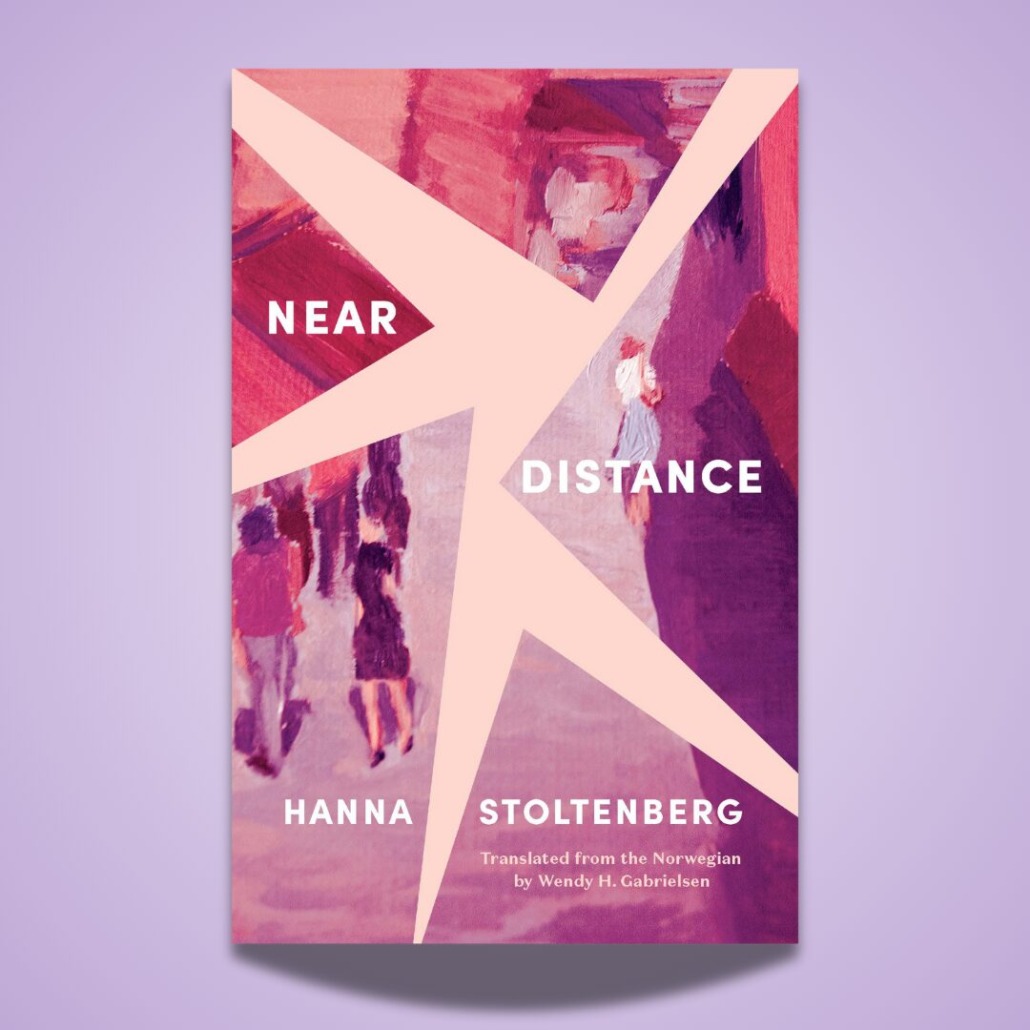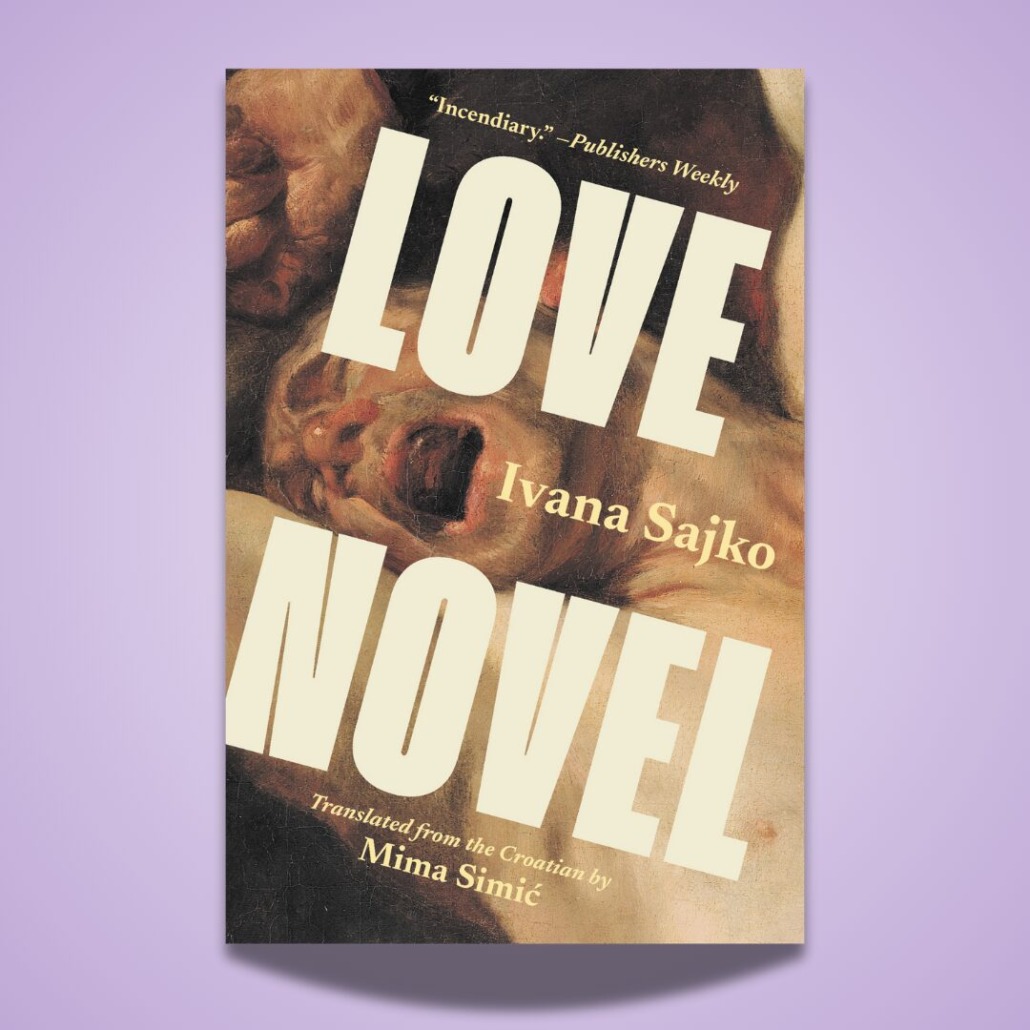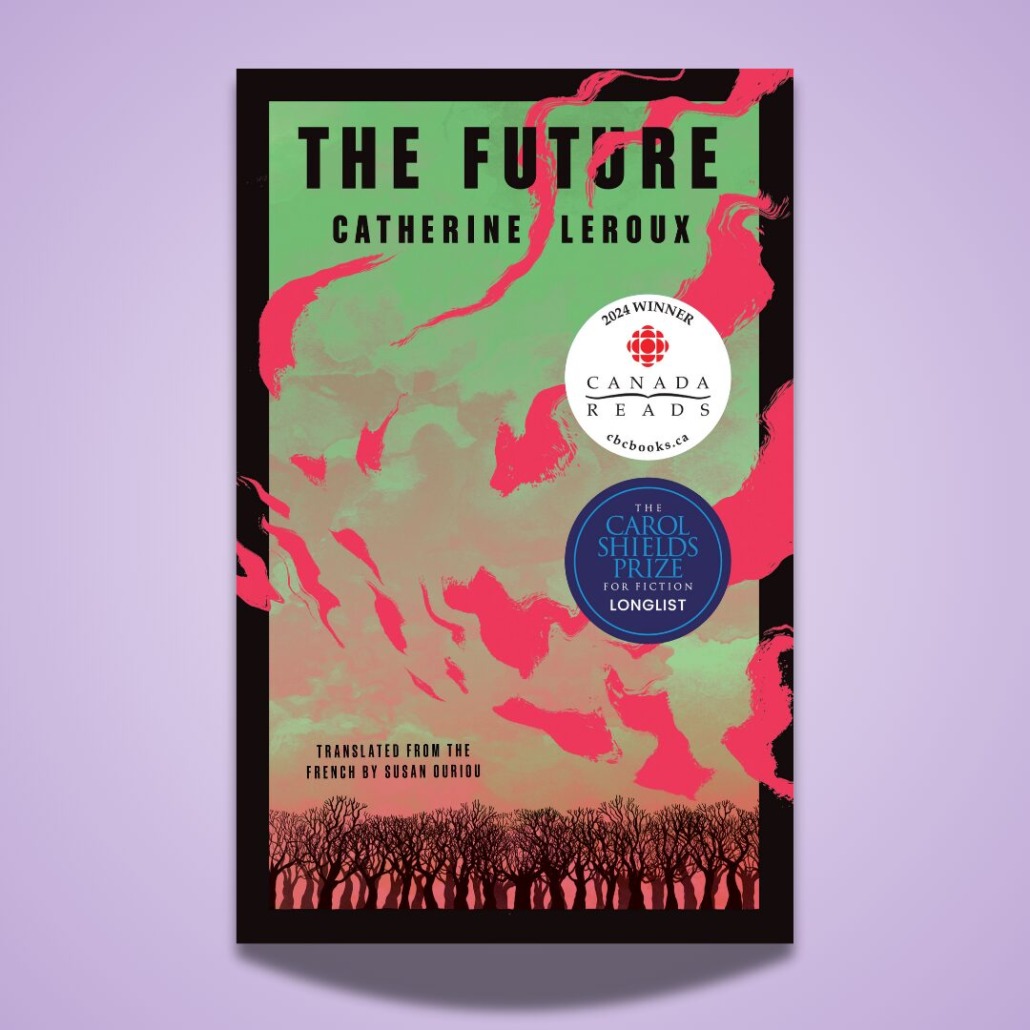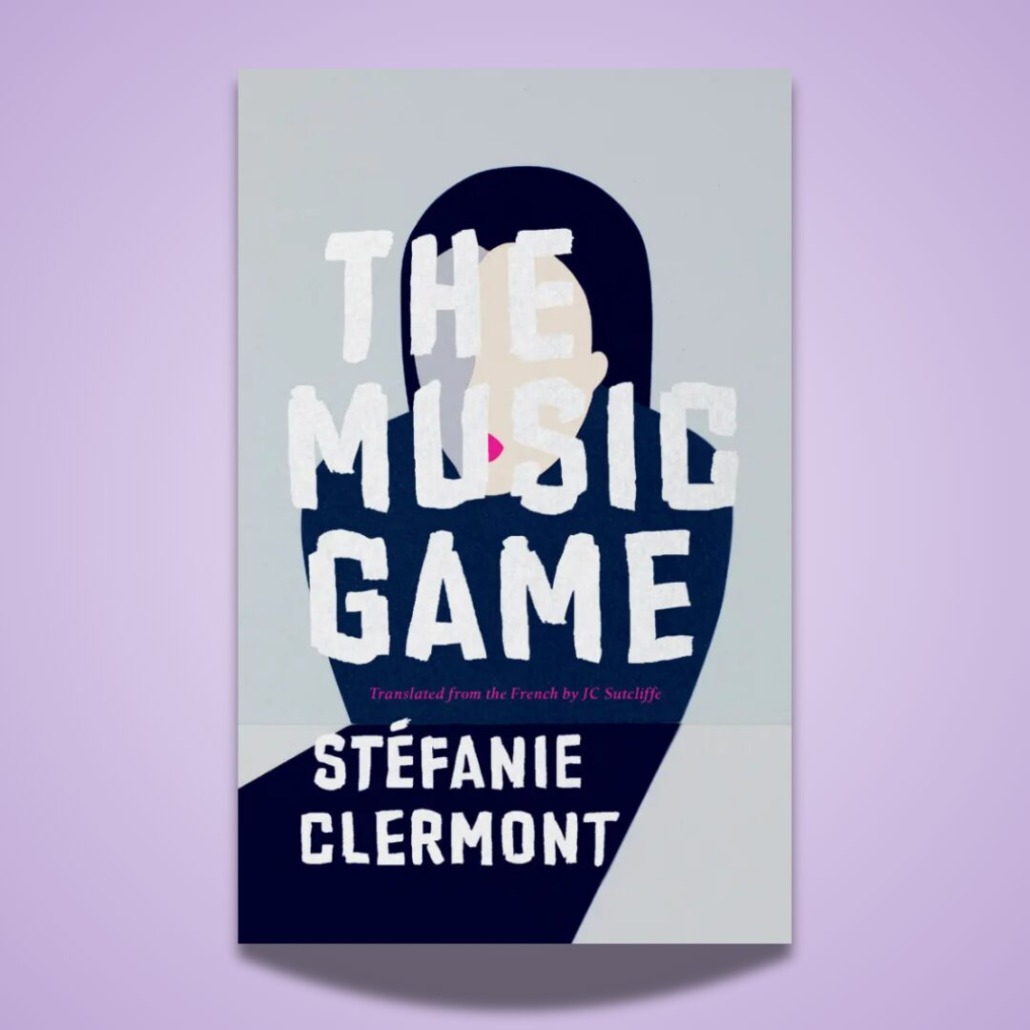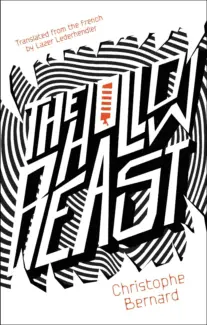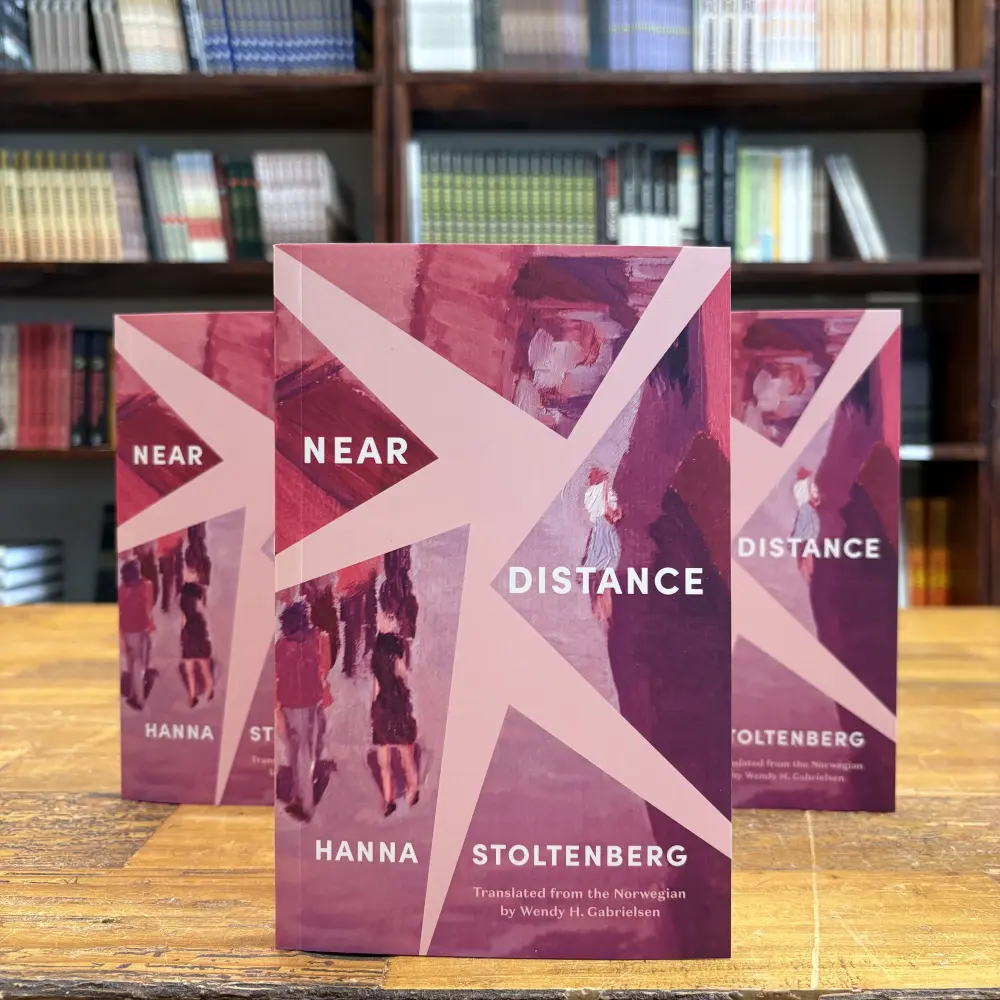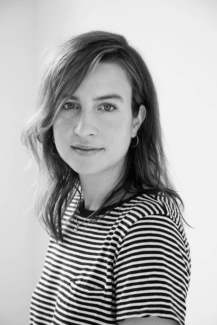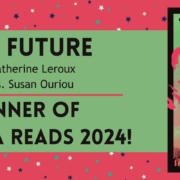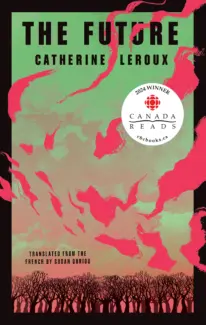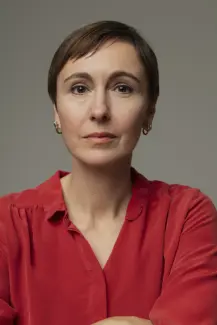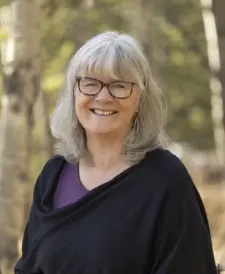Want to get new excerpts, musings, and more from The Bibliophile right away? Sign up for our weekly online newsletter here!
***
If you’re not yet acquainted with GauZ’, the Franco-Ivorian novelist and author of International Booker-shortlisted Standing Heavy, you are in for an early Halloween treat. And if you are: you’re likely anticipating a trick or two, GauZ’ being a writer in no short supply thereof.
I first encountered GauZ’s work late last fall, when Dan passed along a PDF of the debut that would in March make its way onto the shortlist. It’s a slim novel, 180ish pages, and I read it over the course of a Friday evening and Saturday morning, pausing only when I had to wrestle unbound pages back from my partner, whose eye kept catching on the titled vignettes that make up some of the sections of this kaleidoscopic story of three Ivorians working as security guards in Paris. With titles ranging from “Babies” and “The Moustache Theory” to “Right Buttocks” (followed, of course, by “Left Buttocks”), I couldn’t blame him: written from the perspectives of the guards themselves, these passages are brief observations of the curious behaviours of Western shoppers, and together comprise a shrewd, deeply funny, always unexpected ethnography, compiled by our intrepid discoverers, of the strange land in which they’ve found themselves. No surprise: GauZ’ is also editor-in-chief of News & Co, the satirical economic newspaper.
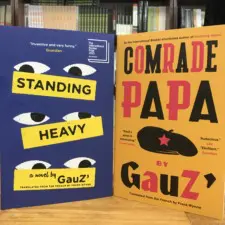
Photo: Standing Heavy (2023) and Comrade Papa (2024) by GauZ’, translated from the French by Frank Wynne. Both covers designed by Nathan Burton.
Comrade Papa is the second of GauZ’s novels to find English publication, also in brilliant translation by the inimitable Frank Wynne—truly this pair, perfectly matched as they are in intelligence and linguistic wit, should be known as one of the great duos in translated literature. In this sophomore glow-up, GauZ’ doubles down on satire and turns his canny anthropological eye in part to the past. Comrade Papa is both an unexpectedly slapstick historical novel and a charmingly comic, contemporary coming-of-age story, alternating between the perspectives of a young 19th-century Frenchman who joins a colonial expedition to the as-yet-untouched Ivory Coast and a young Black boy born to Communist parents in contemporary Amsterdam. He writes neither story as one might expect: the colonial narrative is vividly voiced and politically complex as our hero navigates between factions who disagree on everything (except their shared hatred of the British), while the child narrator of the contemporary sections, whose monologue is rife with comic malapropisms (“the yolk of capitalism” and “the lumpy proletariat” are two of my favourites), demonstrates how the long arc of the colonization finds its expression in surprising ways, and with unexpected ends. This intertwining of narrative styles and fact with folktale, writes Nadifa Mohamed for the New York Times, comprise a “gleaming mosaic,” and for the Guardian, John Self calls the narrative “funny, ebullient, often chaotic,” and even better than Standing Heavy. For TLS, Lara Pawson writes: “Only a bold writer in command of their talent could take on such a perilous and vast subject and come out, with laughter and love, on top . . . If you are foolish enough to open this book with a set of assumptions about where it will go, prepare to be wrong-footed . . . Expect to see GauZ’ back on the shortlists with this superlative work of fiction.”
We certainly agree, and we hope—now that you’re duly prepared for mischief—you’ll treat yourself to Comrade Papa’s pair of unexpected adventures. In the meantime, we thought you might enjoy our exclusive interview with the man himself.
Vanessa Stauffer
Managing Editor
***
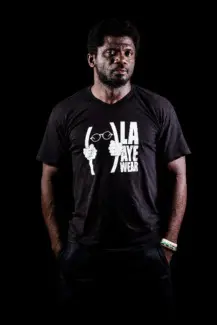
Photo: Franco-Ivorian author GauZ’
A Biblioasis Interview with GauZ’
Hey GauZ’, would you like to start by telling us a bit about yourself?
Anyway, my name is GauZ’, and I’m a Franco-Ivorian writer. Ivoiro-French. I can say both. And for almost ten years, I’ve been writing books that are a total proclamation of style. I make people think. This is what matters most in the world. What matters most in literature is style: it’s style that appeals to the reader’s intelligence, it’s style that appeals to the reader’s empathy, it’s style that reminds the reader that the cause you’re defending implicates them too. I believe that what makes me an author is this style that I have to offer: the capacity to marvel, to write dialogue that sparks, to capture the beauty of gestures, things like that.
Comrade Papa is your second novel with Biblioasis, what inspired you to write a historical novel?
I started from a very simple question, in fact. Who are the people who came to colonize us 150 years ago? And I realized that, in fact, they’re people who are a lot like us. By us, I mean Africans. In other words, they were peasants who, in the middle of France in the nineteenth century, were also under the heel of the French bourgeoisie. Colonial domination as it expanded across the globe was still a project of the European upper class. So when does the peasant who goes to Africa become “civilized,” or become a member of the bourgeoisie? And that’s how I came up with the story of this young man who leaves the backwaters of rural France to make his fortune in Africa. Just as today, Africans come to Europe to pursue their destiny, there was a time when the idea of immigration was European, in the sense that it was something lower class people could do to make something of themselves. I also wanted to weave the story of the young man Dabilly, who goes to the colony that would become Côte d’Ivoire, with the story of a child in Europe today, because childhood represents the present and also the future, going to Côte d’Ivoire more than a century later. I wanted the novel to have the geographical trajectory of the immigrant to Africa and also to follow the human trajectory from childhood to youth to adulthood, which is universal.
The great novels of colonial exploration by Joseph Conrad, among others, inspired the hyper-literary style of your novel, Comrade Papa, even if the events of the plot bring no glory to the central character (young Dabilly suffers from diarrhea, stupidity, heat, etc.). Can you tell us about your choice to write a historical novel in a style that evokes the early twentieth century, and your almost satirical way of doing it?
First off, I wanted to write something no one would expect after Standing Heavy. And two, in each of my novels the style follows from the story—the novel imposes its style on the author. Comrade Papa imposed its style right away. I wanted to give the sense that the novel was like a letter the main character Dabilly was actually writing at the time. I read a lot of correspondence, in particular the letters of former colonial administrators. They had two writing styles, when they wrote the big administrative reports, they were writing in a grandiose nineteenth century style. And when they wrote to their buddies their style was different: more touching, more direct, and without circumlocutions. There was the official speech of triumphant France. Where they would report, we secured victory over this Black chief in such and such a village, it cost so many lives to pacify people in such a region, we have brought honor to the Republic. But when they would write to their buddy, they might say, I’m heartbroken. I met an incredible girl. The others like her too. She’s a bit easy, a bit loose, and it kills me because I’m falling in love. I couldn’t believe when I was reading these letters that men had traveled on a ship to another continent and couldn’t understand the difference in sexual mores between the society they’d left and the one in this new place. In their letters, they confided to their friends about their confusion, their loneliness, their feelings. Some of them even wrote about their children, when officially, they weren’t supposed to have any. I read a heartbreaking letter from an otherwise repulsive guy. The guy’s racism was totally disgusting, but when his twelve-year-old kid died, bitten by a snake, you know I almost cried. This time spent in the archives helped me discover the novel’s style. When Dabilly is still in France, first in the country, where his parents are millers suffering from pneumonia from breathing in flour for twenty years, and then when he works in the factory in Châtellerault, the writing is reminiscent of Zola, of the way his writing makes the reader see how mechanization creates working class conditions. Then when you get on the boat it’s like Conrad: first you meet the motley crew, and then you start to understand that Dabilly’s mission is deep in the bush. The problem with Conrad, and he’s a brilliant writer, is that the Africans are stock characters. So as Dabilly begins to penetrate into the interior of Côte d’Ivoire, and the reader understands how observant the character is, the style becomes more ethnographic. Many ethnographic texts from that time are hyper-racist but it’s in these descriptions that you get the best sense of the men, both the colonizers and the peoples they were interacting with and their traditions. So that’s how the novel progresses stylistically.
To write the child narrator, all I had to do was think about what I was like as a kid. He’s got a problem. Not with knowledge, but with language. He speaks as his parents speak in rigidly Marxist terms. He’s seven, he’s missing his mother, who’s like some kind of ghost in the story. And they’re in Holland, which is the country that invented the African slave trade. Slavery and colonization are purely capitalist enterprises, and racism against Africans was invented to justify the practice of slavery. To excuse the fact of turning men into beasts of burden. So that’s why the kid leaves his home in Holland to make the journey backwards towards his own culture. A child who only hears Marxist speeches from his parents. So he speaks like that. I went through a period like that, when I couldn’t speak anything other than Marxist phrases, so it was easy for me to find the humor in that.
Books that allow their reader to feel the way history is acting on the characters and the story are rare, you know? And so I wanted to write something that I missed when I read the big books set in faraway lands: a sense of historical perspective.
The novel tells the story of a mixed-race European boy who discovers Africa in this contemporary moment, and a white European (his ancestor) who discovers Africa as part of the French conquest of the Ivory Coast—these are two characters who make journeys that will change their lives forever, and who discover the African landscape and peoples after thinking about and investing in African mythologies in their own personal ways. Can you tell us a little about the structure of your novel and these parallel journeys?
In fact, what writers often neglect to do is to allow the reader a way to gain a kind of historical perspective on the story being told. I’ve read a lot of novels, a lot of good, good books. Take War and Peace. There’s not a lot of historical perspective in War and Peace. And in a lot of travel and adventure novels, there’s none at all, you enter the story and then stay there. In fact, because you’re so deep inside the story you can’t draw any conclusions about history and about what it all means. Books that allow their reader to feel the way history is acting on the characters and the story are rare, you know? And so I wanted to write something that I missed when I read the big books set in faraway lands: a sense of historical perspective. So that’s why I put this little kid and his story in the novel. I wove the two stories knowing full well that they were going to have to link up in the end and in that connection between the two stories the reader would feel the weight of history. Because history is alive. It lives on in us: whether European, African, or American. No matter your race. A White American lives in the shadow of their violent history as much as a Black American. But it’s rare that a writer will allow that personal history the reader carries with them to resonate with the novel. I wanted this hyper-personal thing to link these two characters who are diametrically opposed from the start. There’s nothing to make you think that this child of Marxist parents in Holland is a mixed race kid. And there’s nothing to make you think this White guy in the nineteenth century who gets on a boat to Africa is going to stay there and have a family. This book is full of surprises. The colonial history of Côte d’Ivoire, it’s not a nice story, but I wanted to give the reader a nice dramatic surprise.
The main character is one of the guys who came to Africa from France as part of the famous “mission civilisatrice” that justified the colonial project. The character of Dabilly is not a commander, he’s poor, ordinary, an economic migrant, who makes a bet like those who go to Europe or the United States at that time. Did you conceive the character of Dabilly before you started writing the novel, or after you’d started? How did you get into his point of view and sensibility?
It was super easy. It’s weird how easy it was to imagine myself in the shoes of a twenty-year-old kid who wanted to go and try his luck somewhere else. Dabilly did exactly what I did when I got my master’s degree in Abidjan. I said to myself, this place is too small for me. So there you have it. And in fact, that’s why people say that I’ve removed the colour from this character, but all I had to do was think of him as a working class guy, a young guy, who’s on the move. Who wants to build a future. It’s like all young people in Africa. All I had to do was look at myself and my friends. And to push the empathy further, I had to find a place of origin for him. I looked at the map of France and I wanted him to come from a hard knock place: there were three very hard places at that time: Brittany, Corsica, and Loire. I remembered I had a buddy who lived in a town called Abilly. So I called my character Dabilly. I went there, walked around, went to the town hall and read the registers from the nineteenth century. The peasants did not have it easy. The mill where the character’s parents work—the ruins still exist. I could imagine the suffering of the millers and their families when they died from pneumonia after twenty years of inhaling flour dust. I followed the route Dabilly would take after they died. It’s funny, in Europe, every time someone wants to change their destiny, they head west. And on the way west, there was Châtellerault where he works in a factory and first heard of Africa, then La Rochelle. And it just so happens that La Rochelle is the colonial town that founded the Ivory Coast. So the story was all lined up. He leaves from La Rochelle by ship and arrives in Grand Bassam. My hometown. The book starts with the waves, because the break posed a real problem to explorers. France colonized the Ivory Coast territories late because of the power of those waves. To write the book all I had to do was put myself in the guy’s shoes, there, in front of my house, on the beach, to see how difficult it was going to be for him to come to Grand Bassam. So I wanted to both reckon with the power of those waves that have drowned many people and at the same time I wanted to make his arrival a bit ridiculous, as the arrival of the White people in their wool uniforms must have been. They’re the ones who wrote the books, so they always have heroic arrivals, but really, it’s quite ridiculous to arrive wet in the sand, in stockings, short pants, and a feathered hat.
The Kroumens, the Agnis and other peoples of the land that became Côte d’Ivoire have different languages, economies, traditions and jokes, and in your novel they trade with the colonizers, often in very advantageous ways—so the fiction of the civilizing mission is belied a little, and in a rather funny way. It’s very well done. The fiction of colonization runs the risk of characterizing Africa as a single country. Was it important for you that the novel be panoramic in terms of places and characters to resist this narrative?
I like the term panoramic. The novel could only be panoramic because in Africa our countries are very diverse. Take Conrad’s Heart of Darkness, everyone’s the same, really. Even the forest is the same as the men who live in the forest, both are unfathomable: characterized by darkness, danger, fear, and languor. I like Conrad, but you can see that he didn’t couldn’t see the difference between people. Whereas I grew up going to school with people there were fifteen ethnic groups. The question of difference doesn’t even arise—it’s a part of life. By the age of six or seven, I’d already heard a dozen languages. So that’s why the child narrator who comes from Holland to Côte d’Ivoire, that’s why he adapts so well, because he’s learned to hear different languages, so he knows how to work with the language. Because of all these differences, naturally, we learn, we learn to converse with people who aren’t like us, to find what brings us together rather than what makes us different. And that’s why Africa is always negotiating. Negotiation is a civilizational value across the African continent because of its panoramic diversity. And so I had to write this novel in a way that would show the differences between the people of Côte d’Ivoire.
Literary writers today seem to be plagued by a kind of cynicism. They’ve understood everything. They don’t hope or believe in anything. But in fact, amidst the violent acts that one civilization has perpetrated on another it’s true that there are people who have forged bonds of love.
You did a lot of archival research in preparing to write your novel. How did this research inform your thinking on colonial history and the question of how this history is received today? Did you think about how your European, African, and now American readers would perceive this history and how you could play on these perceptions?
The plan for this book was to tell the story of colonization as the people experiencing it when the colonizer’s first arrived perceived it. This is a narrative told on a human scale. I wanted to avoid getting into grand theories, in fact, by writing about human adventures that everyone can understand. Because you quickly understand what it’s like to be lost. You quickly understand what it’s like to feel emptiness and to feel love. The French people that were sent over as part of the so-called “mission civilisatrice.” They weren’t civilized. They were poor country bumpkins. Just a group of clueless people who had incredible power in their hands and who used and abused it. All in the name of the capitalist economic model. But the leaders of these improvised colonial forces didn’t belong to any other civilization beyond the one they were inventing on the soil they claimed as their own. Well, that’s not true, they also belonged to the civilization of greed. Which followed logically (laughs). And that’s where all my research led me. I had to take on the heaviness of colonial history to be able to make light and to tell human stories in a colonial context. It was important that the colonial context be well defined in the novel: that the reader understands what’s going on, that they imagine the places, that they truly see the men for the first time. That there’s empathy for both the colonizer and the colonized: because these are merely the men. And that the reader also sees everything that is exchanged between them and that the importance of everything that was exchanged becomes clear. The story of contact is a story of exchange. Many of the Africans the colonizers were trading with believed these white men were passing through and that it was good to talk to them and to trade with them. That’s what an economy is: the ability to exchange tangible and intangible goods. And Africans had thriving economies that existed without the context of systematic domination. In fact, the Africans realized too late that the person with whom they believed they were trading with on an equal footing had come for a different reason entirely. So in a way it’s simple. The story of contact is a story of exchange but what’s more, is that in order to fully understand the subtleties of that period, it’s not enough to study African colonization, you also have to study the civilizational context of Europe in the nineteenth century, going back to the Napoleonic Wars. They should give me a doctorate in history, I’m being a smartass, but it’s true.
Love and family are the ties that bind the two narratives (one contemporary, the other historical) in this novel, so while the story is often funny, it’s tenderness that carries the reader to the conclusion. We always talk about wars as the events that determine history. What role does love play in the history of France and Côte d’Ivoire, and in your novel, Comrade Papa?
The great lesson is love. The love this young man has for a woman: his wife, his lover, who becomes a mother. I didn’t want to add violence on top of violence. I think the reader knows the horror of the colonial situation and sees the violence described in the book. To get them through the novel, I wanted to give them the tenderness of family and of love because it’s so universal. We don’t call on love enough! We don’t call on empathy enough! We don’t call on tenderness enough! Literary writers today seem to be plagued by a kind of cynicism. They’ve understood everything. They don’t hope or believe in anything. But in fact, amidst the violent acts that one civilization has perpetrated on another it’s true that there are people who have forged bonds of love. This is what can allow us to think about colonization and contact as something that happened to people like you and me. I wanted the child narrator to discover his love for his mother, and his grandmother’s love as well. He pieces together one hundred years of unsuspected family history and it’s very touching. When I finished writing the last chapter, I cried. I’m not ashamed to say that I had tears in my eyes when I finished my story. It allowed me to see how sincere I was. I believe sincerity is a form of intelligence.
Finally, what are you reading now?
Right now, I’m reading poetry and philosophy. Charles W. Mills, The Racial Contract. It’s a bit hard going and yet it’s brilliant. I’m also reading the poetry of Léon-Gontran Damas, one of the founders of the Négritude movement with Léopold Senghor and Aimé Césaire. I’m committing poems to memory for the first time and it’s really worth doing. His first collection Pigments and his last collection Black Label, are just pure genius.
***
In good publicity news:
- The Notebook by Roland Allen was reviewed in the New Yorker: “Allen’s narrative moves fluidly as he recounts the evolution of the notebook’s use.”
- A Case of Matricide by Graeme Macrae Burnet was reviewed in the Guardian: “This quirky blend of psychological thriller and smalltown life is both thought-provoking and entirely convincing.”
- May Our Joy Endure by Kev Lambert (trans. Donald Winkler) was featured in Lavender Magazine: “Worth the ride.”
- A Way to Be Happy by Caroline Adderson was featured in Scout Magazine: “A collection of unique, entertaining and multi-layered stories.”
